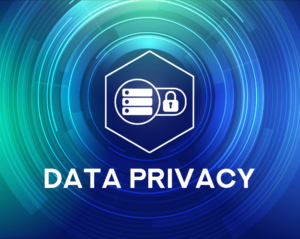 An unfathomable excess of online data is generated every day as the global economy churns; individuals take to social media; and modern life strives to keep pace with advancing technology.
An unfathomable excess of online data is generated every day as the global economy churns; individuals take to social media; and modern life strives to keep pace with advancing technology.
Securing that data is rapidly becoming a necessity as companies recognize it as an asset and realize the potential value in collecting, using, and sharing it.
In recent years, many companies have learned the importance of data privacy through breaches and privacy failures. To avoid such calamities, having protective measures and strategies in place is crucial. From the smallest of businesses to major corporations, everyone is at risk. As the data economy continues to evolve, companies find the roles of data protection officers and similar professionals becoming a demand. This demand intensifies with new regulations and standards on information security.
WHAT IS DATA PRIVACY?
Also known as information privacy, it is a branch of data security involving properly handling the collection, storage, and dissemination of information — including to third parties. Currently in the U.S., there is legislation in place regarding data privacy and protection in many industries. One piece of federal legislature in health care is the Health Insurance Portability and Accountability Act (HIPAA). It was designed to protect patient information in health care and health insurance.
Another federal piece of legislature is in finance and is known as the Gramm-Leach-Bliley Act (GLBA). This was passed to help protect nonpublic personal information — such as income, credit scores, and more. While there are several regulations at state and federal levels, consumer privacy is regularly compromised by companies and governments. We are poised to see a significant increase in regulation in the future. As data protection regulation grows worldwide, the demand for global privacy and requirements also increases.
FOR BUSINESSES
Integrating data privacy training into your onboarding process and general training programs is a first step. Implement free security tools available on the market such as VPNs, encrypted storage solutions, and password managers. You can reduce vulnerability with these tools that are relatively easy to install and operate. Next, be sure to monitor your network for suspicious activity and potential attacks. These breaches can happen to organizations of all sizes.
FOR CONSUMERS
On a consumer level, there are some steps to take to improve your privacy despite not having much control over how organizations store and secure your data. A good first protective measure to take is in line with businesses. Password managers and VPNs are available on an individual level to encrypt your Internet connection and keep sensitive information safe. Also, be sure to back data often to secure it in the event of a compromise. Lastly, ignoring click-bait content and strange requests via email or social media is a simple way to protect your network and data.
Originally posted on Stay Safe Online



